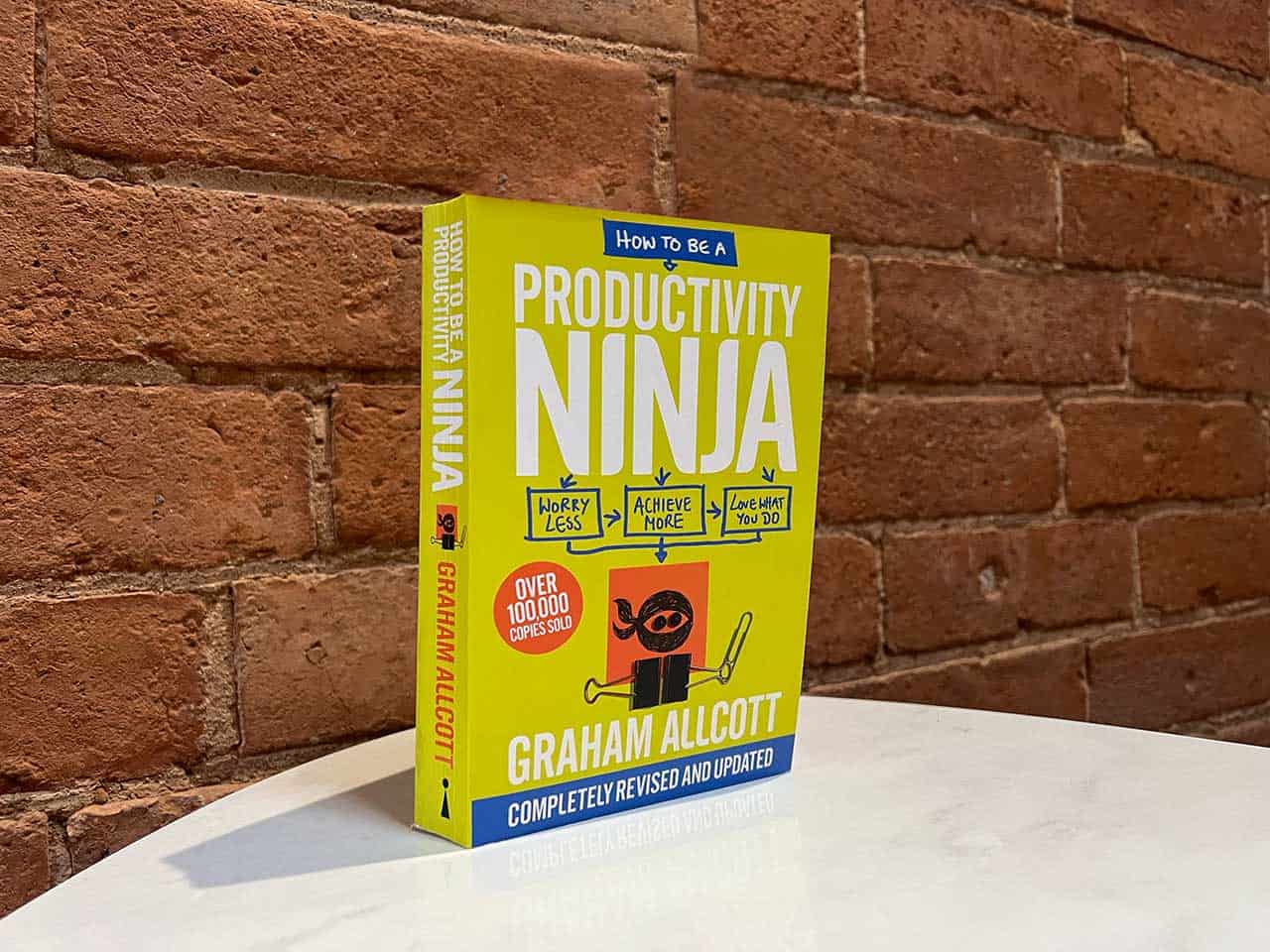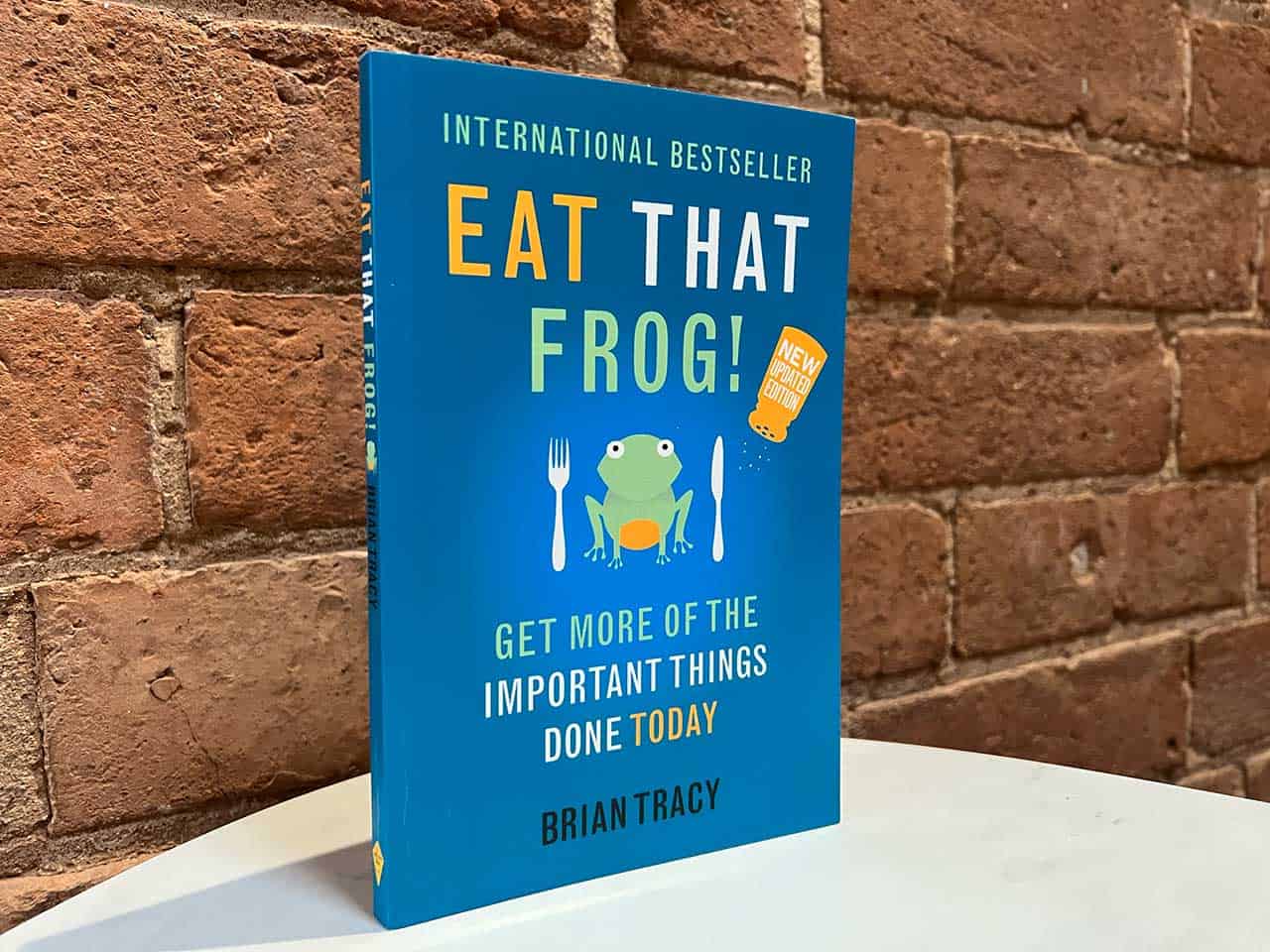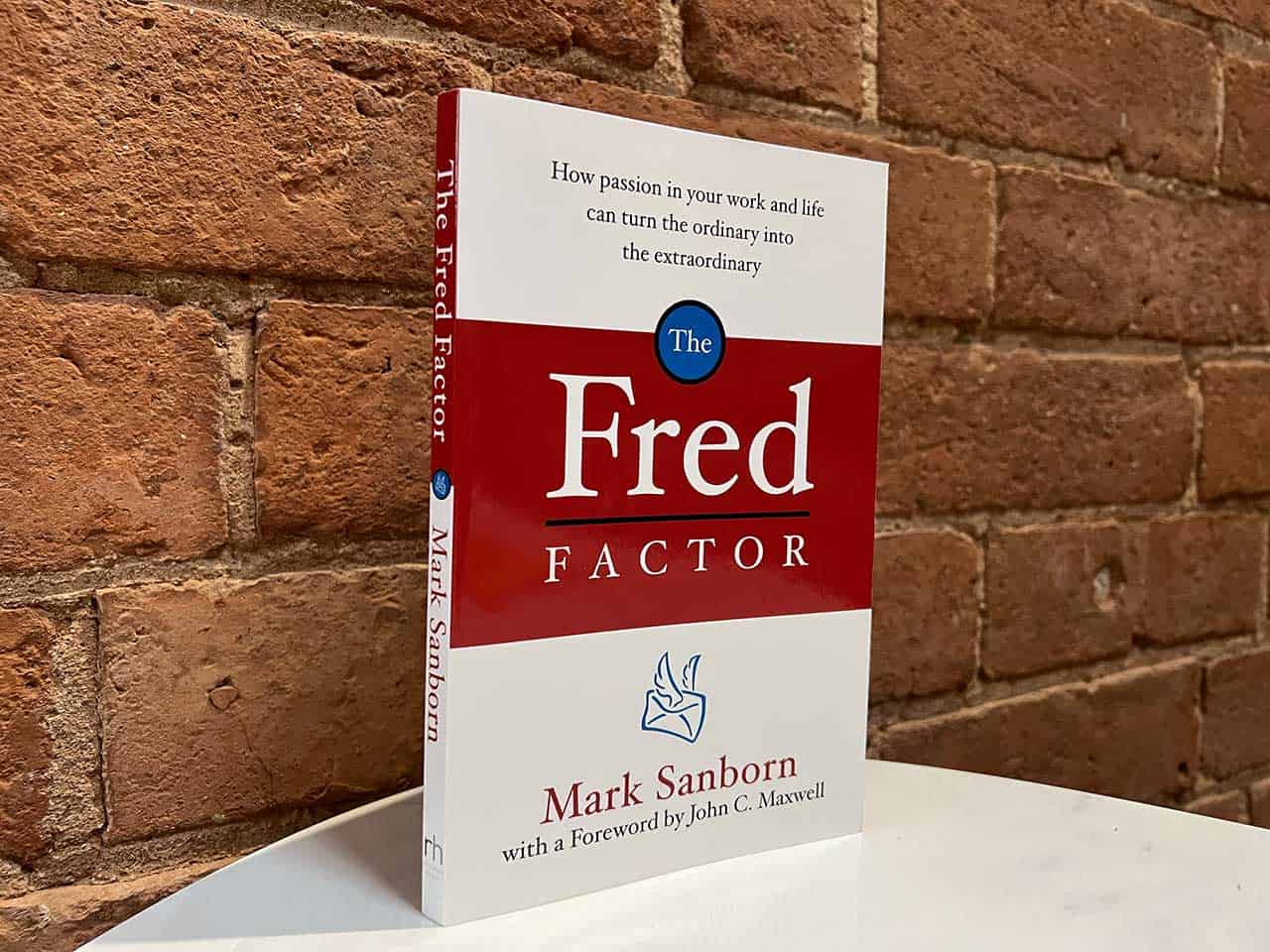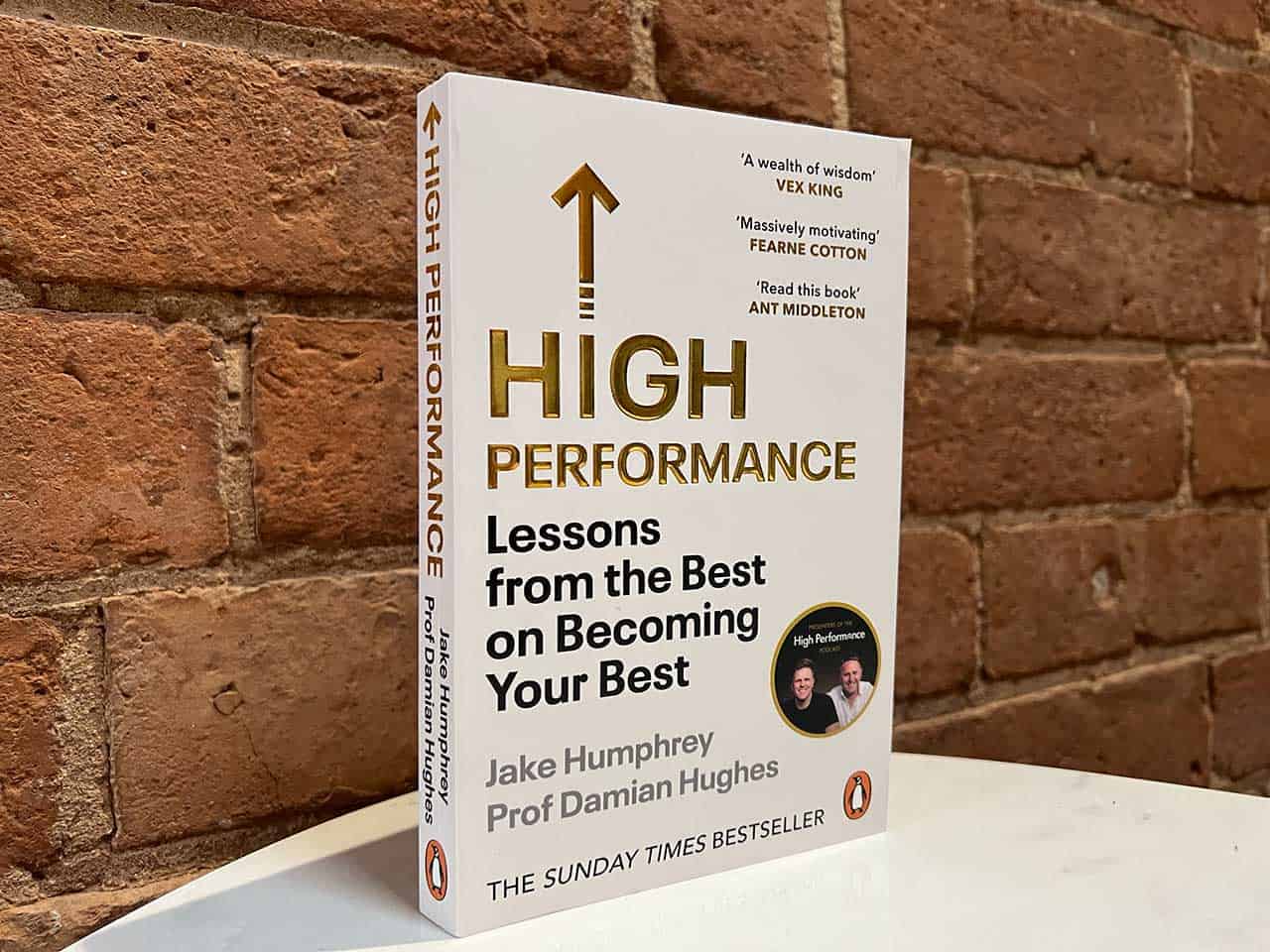The first week of April marked the start of my fourth month at Flamingo. It would sound poetic, if a little cliché, if I could say it’s been a rollercoaster, but it hasn’t been ups and downs… it’s been ups and busier ups!
Coming into the office on the first Monday of the month, I was expecting to sit down and start a new week of content generation, data reporting, and client meetings. I booted up Outlook and what should I see, but an email from Emma (our boss) with the subject: Book Club.
There had been whispers in the office the previous week. A mysterious package from Amazon had arrived and when asked, our Marketing Manager Chris simply replied, “they’re books.”
Once our Monday meeting had concluded, the package was opened and the books were handed out.
Emma explained that we’d get 15 minutes at the start of each morning to read our book, all part of a new professional development plan she was keen to put in place, alongside 60 minutes on a Friday to take part in an online course.
And so, a few weeks later – once everybody had dived into their books, I asked the team to let me know any key takeaways that we could share.
This is what we came up with.
Oscar
How to be a Productivity Ninja by Graham Allcott

For me, the most useful part of the book was the chapter on email management. I cast my mind back to my inbox filled to the brim with social media post feedback, conversations I’d been CC’d in on, the occasional newsletter or marketing email, and then buried under them, the actual important conversations I’ve had with clients.
In previous jobs, I had made the attempt to clear out my inbox; when I was finished with an email, I’d delete it, or I’d create half a dozen folders that covered every possible interaction I might have with an email and then I’d have a busy day or an email that didn’t quite fit, and the entire strategy would collapse around me.
Starting at Flamingo, I had dived right in and my organisational inbox strategy slipped through my fingers. “It’s fine, I’ll get on top of it once I’ve settled in.” Well, I would have considered myself settled in about a week into the role and the emails continued to pile up.
When an email came in, I’d stop what I was doing to see how important it was, and if it was, I’d either mark it as “To do” or respond to it straight away. If I wasn’t too distracted by other work, I might be lucky enough to delete the unimportant emails, but that was rarely the case.
Thanks to the book, I’ve now allocated myself Email Time™ (it’s not actually trademarked). Each hour, or if I’m truly in the zone, when I’m finished with a project, I give myself 10 minutes to check my emails. I can file away ones for later, reply to or action the important ones, or delete the space-waster emails. Easy peasy!
It's been two weeks so far since my email strategy has come into effect and I took every chance to go through the backlog, deleting old emails or saving ones that might be important. I’ve created a folder for each client, and an ‘Action’, ‘Read’, and ‘Waiting’ folder, and I can proudly say as of yesterday, my inbox is EMPTY. Each email that lands in it gets neatly filed into a folder or down the drain – Sorry spam.
Of course, organising my emails wasn’t the only thing Book Club’s achieved for me. I’ve managed to harness my ‘second brain’, the much cooler word for my to-do list. Relying on something as simple as a to-do list or notepad and to let it do your organising for me. Holding in any information that might be important is just taking up space in my head. It ties back into my email organisation and gives me something I can refer to, to see where my focus needs to be.
I’m only halfway through How to be a Productivity Ninja and I’ve already found tremendous value in getting an external perspective on how I work and how I think about how I work.
Jodie
Eat That Frog by Brian Tracey

After reading Eat That Frog, I felt motivated and inspired to begin each day by eating my biggest frog first. Now, while this sounds a little weird, it means to tackle your biggest and most important task first. That way it is over and done with and you get satisfaction for completing something early in the day.
By eating your biggest frog first, you eliminate any added procrastination. Through holding off on completing tasks of low importance or value, you can put all your energy into the tasks that are going to benefit you the most, and then you can fall on to the other tasks as and when.
Another key message is about planning our your day. By planning your day properly (rather than just jumping onto things as they come up), you can tick off each task as it’s done. If you have one big task, break it down into smaller tasks and tick them off as you go – not only are you eating your biggest frog, but you feel accomplished with each bite!
Joel
The Fred Factor by Mark Sanborn

When Emma first introduced the notion of Book Club, I was pretty excited to see what I would get to delve into – and what knowledge and insight, I would pick up along the way.
So I started The Fred Factor by Mark Sanborn, a short book that highlighted how injecting passion into one’s own vocation will produce positive results that could never have been expected.
Personally, I was a little sceptical of this given the amount of passion I put into my Fantasy Football team every year and how dreadfully I finish (shout out to everyone burned by the Pep Roulette!).
However, by its conclusion I realised that my initial thoughts fell far short of the final message.
The point behind the book was to showcase how people respond to people. And a person who is energetic and enthusiastic is eminently more engaging than any dower, flat competitors. People are more inclined to return to something engaging, it is more likely to remain in their heads, and since that engagement stems from enthusiasm, it would be foolish for us as marketers to not tap into it in some way.
Armed with that knowledge, I now make sure to inject the same level of passion our clients have for their businesses into each and every piece of content we create on their behalf, helping them to stand out.
Eddy
High Performance – Lessons from the Best on Becoming your Best by Jake Humphrey and Prof. Damian Hughes

Setting aside some time to sit down and read during my workday was an exciting prospect – every new year’s resolution consists of promising myself to find the time to read more and surprise, surprise it never happens.
High Performance is based on a series of interviews carried out through the authors’ High-Performance Podcast and there were immediately some actionable processes that have already improved my overall outlook on tackling and managing long-term projects.
One of the takes high performers all seem to possess is accepting the consequences (good and bad) for your actions – holding yourself accountable when they occur.
With this simple equation:
L + R = O
(Life + Response = Outcome)
This essentially boils down to no matter what you’re trying to achieve, life throws things at us, and we respond. The outcome of these little events, however, are dictated by the combination of the previously mentioned with only one being something you can control (response). So, that’s what you should focus your energy on.
This has been something I have implemented in my work life as well as with the team around me – we’re all a single unit and the performance of this team is dictated by every one of us holding ourselves accountable.
